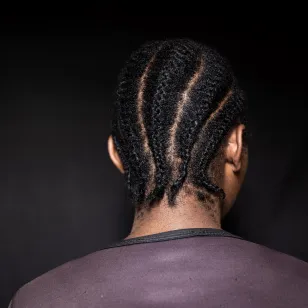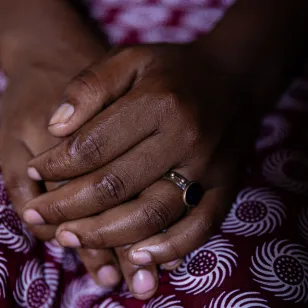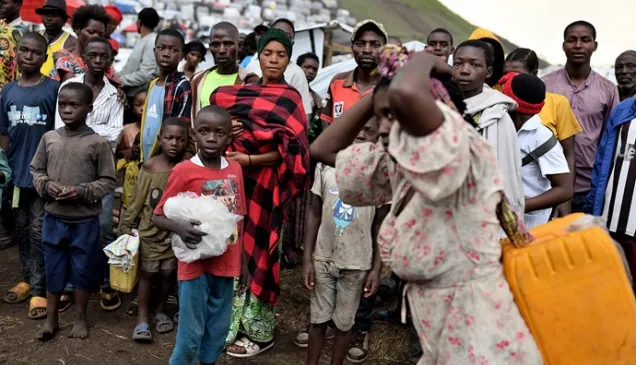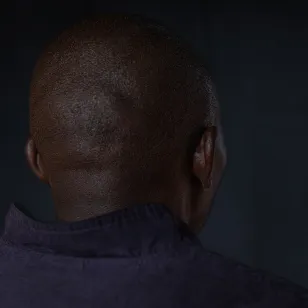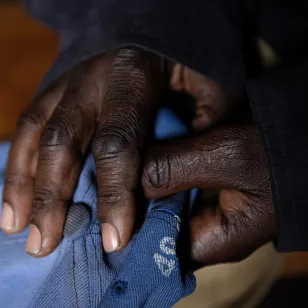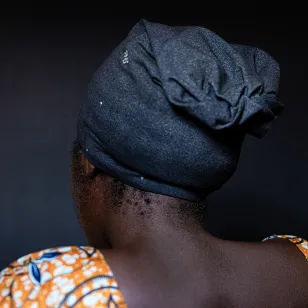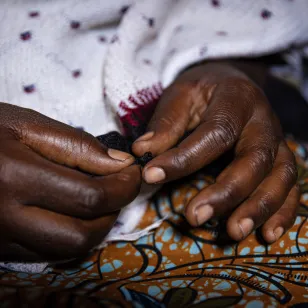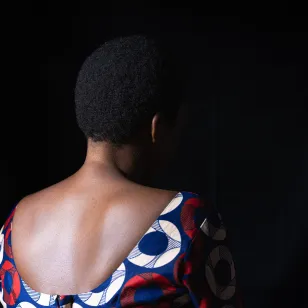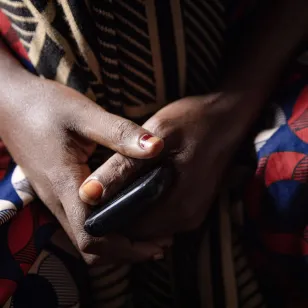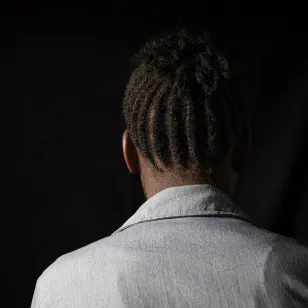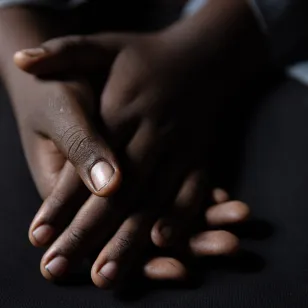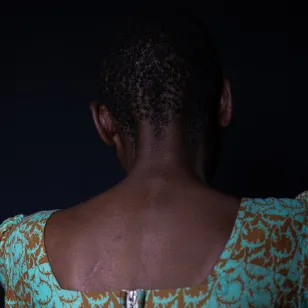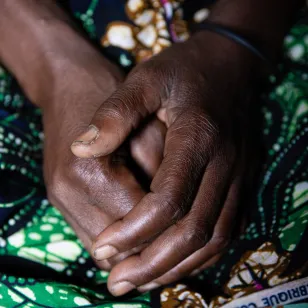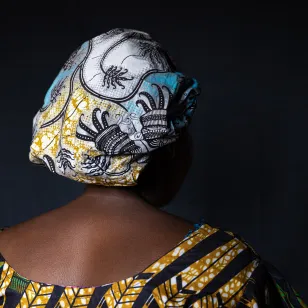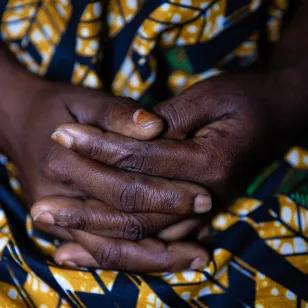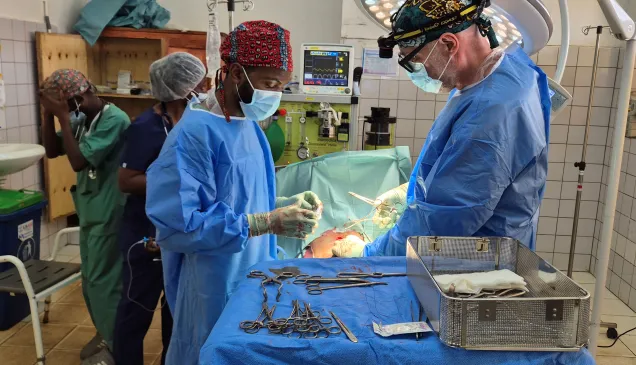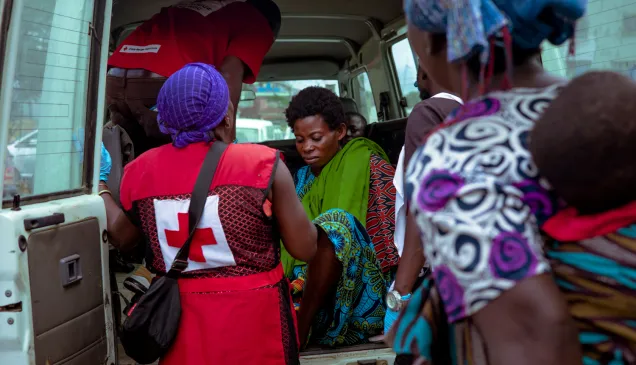“I was afraid to tell anyone” – supporting survivors of sexual violence in the Democratic Republic of Congo
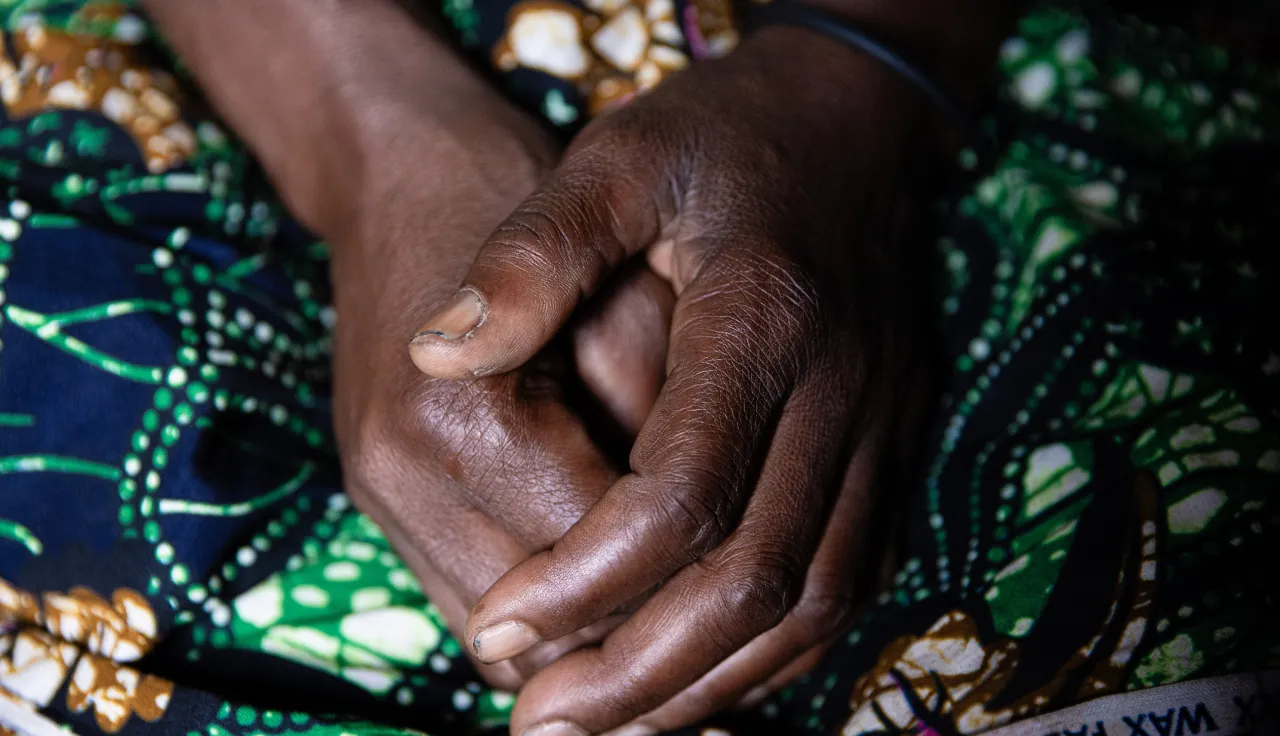
Far from the world’s attention, conflict is again shattering lives in the Democratic Republic of Congo. Alongside the fighting, sexual violence is rife. ‘Listening houses’ run by the Red Cross offer sanctuary and support to survivors. These are some of their stories.
Names have been changed.
Francoise's story
Françoise, 17, fled her village when fighting approached. She lives in an IDP camp on the outskirts of Goma.
"With a group of other women, I started going to the forest to collect firewood for sale," she said. "About two weeks ago, we came across a group of uniformed armed men. We ran and they chased us. Two of them caught me when I fell on the ground and couldn't run any more. They raped me one by one. They didn't say anything. I could see they were also scared.
"When I could stand up and walk, I returned to the camp, hiding my torn clothes. I was afraid I would get pregnant. I was afraid to tell anyone. I felt useless, scared and alone. Finally, I decided to confide in the older women in the camp and they sent me [to the listening houses]."
Although strictly prohibited by international law and national laws, sexual violence remains one of the main protection issues in the Democratic Republic of Congo for women and girls, but also for men and boys.
Trésor's story
Between January and March, a UN-led group of agencies recorded more than 12,600 cases of sexual violence in North Kivu. While the overwhelming majority of survivors are women and girls, men are also among the victims.
Trésor and a friend encountered four armed men while collecting firewood. They were told to get on the ground and remove their trousers.
The 57-year-old recalled what happened: “‘I am not a woman! What are you doing?’ I screamed at them. ‘Get on the ground and you will see what happens,’ they yelled back. I had never heard about this happening before. Men attacking men in this way. My friend didn’t survive the attack.”
Trésor returned to the camp and told his wife what happened.
“She tried to comfort me,” he said. “She told me it was not my fault. For several days I was in terrible pain. Then I decided to come to the ‘listening houses.’ I spent a long time standing outside, too ashamed to enter. I thought it was only for women. I still cannot sleep, but I am glad I came. I hope I will get better one day.”
In the DRC there is a direct correlation between the increase in sexual violence on the one hand, and the intensification of hostilities and the fragmentation of armed actors in the east of the country on the other hand. More than half of women in the DRC have been exposed to some form of physical violence, and more than 27% reported experiencing sexual violence in armed conflict.
In addition to the individual behavior of armed actors, massive displacements and the general lack of resources induced by conflicts are likely to encourage sexual violence. The sexual exploitation of women and girls is a particularly widespread phenomenon in camps and areas of mining activities.
Henriette's story
Henriette fled her village in November last year. Her husband is missing. To feed her children, the 30-year-old collects firewood to sell. In the forest near her IDP camp, she became separated from her friends. At this point, she was raped by a man carrying a machete.
“I was terrified, thinking about my children,” she said. “He pushed me into a hole in the ground and raped me. When he finished, he told me to leave and never come back. Said I was lucky he didn’t kill me.
“After I returned to the camp, I didn’t go out for several days. I wanted to throw myself into the lake, and the only reason I didn’t, was because there was nobody to take care of the children.
One day, I heard people from the Red Cross talking about “listening houses”. I was afraid to get closer. Fear of what the neighbors might think. But I listened carefully to what they were saying from afar and I came here when they left. I was sent to the clinic and told I was pregnant.
There are so many questions running through my head: What am I going to do? How am I going to feed my children? What will my husband say if he comes back? But at least I know I'm not alone. There are so many other women this happens to. And that helps a little in a way."
Brigitte's story
Brigitte, 36, found out she was pregnant after being raped while out collecting firewood.
“Five armed men dragged us into the forest. They kept us for five days and raped us while we were there. Then they finally let us go,” she said.
“My husband is a police officer serving in a different town. He doesn’t know what happened and I don’t know how to tell him. When he comes back it will be the end.
“There are days when all I do is stay in bed and cry. I haven’t prepared anything for the baby.”
In the DRC, regardless of the physical and mental after-effects, victims and survivors of acts of sexual violence must face all kinds of consequences, including social rejection and economic exclusion. More than 50% of all affected women report that they refuse to seek help or confide in family members. This proportion is even higher among children and men who have suffered such violence.
Sifa's story
Sifa, 16, was raped by armed men while collecting firewood near her village. Now speaking from an IDP camp in Goma, she recalled what happened.
“They told me: ‘We will not touch your grandmother, or she will curse us.’ Then they threw me to the ground and raped me one by one,” she said.
“When we returned to the village, my grandmother kept telling me that I had to be strong. She also said it would be better if I didn't tell anyone what happened. That it had to be our secret. The next month, I didn't get my period. When the war came to Masisi, we fled and came here, my grandmother, my four little brothers and me. I was told at the health center that I was five months pregnant.
I was sad. But I also knew that being sad wouldn't change anything.
Children in the DRC are particularly vulnerable. They are at increased risk of sexual violence when separated from family members, which frequently happens during displacement. Young boys and girls risk being recruited by armed groups and thus being exposed to violence, including sexual violence.
Odette's story
Odette, 69, and her youngest son have been living in a camp in Goma since October 2022.
She said: “At night, I went to the toilet with a flashlight. Two armed men stopped me on the way and demanded I gave them my phone. When I told them I don’t have a phone, they dragged me far into the forest. They kept telling me that if I didn’t walk fast enough, they would hit me with the handles of their weapons. I just followed their orders afraid they would kill me.
Once in the middle of the forest, they beat me and raped me. Then I lost consciousness. The next morning I managed to get up and walk back to camp, barefoot and half naked, holding on to the trees. I was lucky it didn't rain that night. Now I'm afraid to go anywhere. I constantly hear their threats: "We're going to kill you. We're going to kill you." Sometimes I wonder if none of this would have happened if I'd had a phone to give them.
Neema's story
Neema, 33, cannot remember how many armed men raped her while she was out collecting firewood.
“I was so badly injured that I couldn’t walk to the village on my own. Neighbours got together and went to search for me in the forest,” she said.
“After they brought me back, they told me I should go to the ‘listening houses.’ I am still weak, and I must take care of the children. With the money I received here, I managed to start selling beignets.”
Supporting survivors
The International Committee of the Red Cross (ICRC), with the support of the local representation of the DRC Red Cross, supports the “listening houses” located on the outskirts of Goma. Survivors receive psychosocial assistance and are referred to the nearest health facilities or supported by the ICRC for medical care. Financial assistance is granted based on the needs identified by the multidisciplinary teams.
The ICRC launched its multi-year, multi-country program for the prevention of sexual violence in 2022, the objective being to reduce the risks of occurrence of this violence and to contribute to prevention efforts by focusing on attitudes and practices that lead to the act as well as the stigmatization of victims and survivors.
The DRC was chosen to be one of the first countries in which the program was to be tested, and it is for this reason that the ICRC teams, relying on the links already established with weapons holders, strive to introduce new methods to better understand, evaluate and influence behaviors that promote respect for international law, national laws and the prevention of sexual violence.
The first conclusions drawn from the experience acquired in the DRC and elsewhere clearly highlight the extent to which weapon bearers engaged in conflicts understand their specific role in preventing and managing the harm caused by sexual violence.
In 2023 alone, the ICRC provided mental health and psychological support services to 3,233 survivors and victims of sexual violence in the DRC.
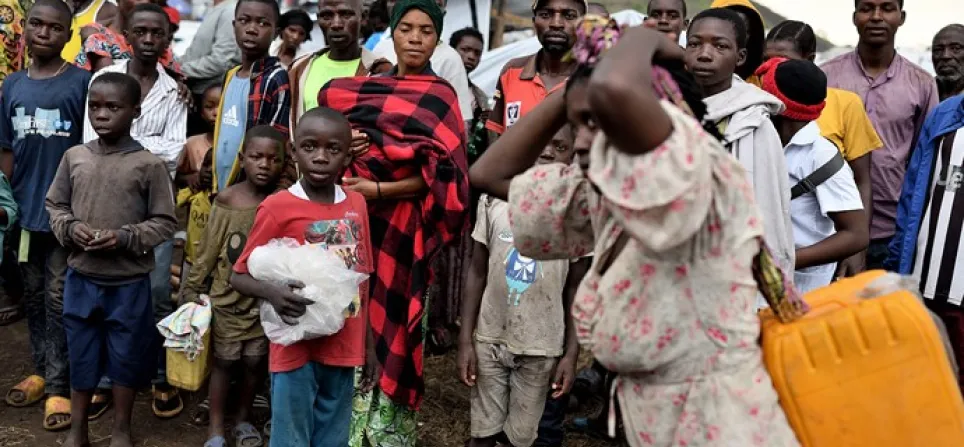
Get involved
Donate now to support our work in the Democratic Republic of Congo.

